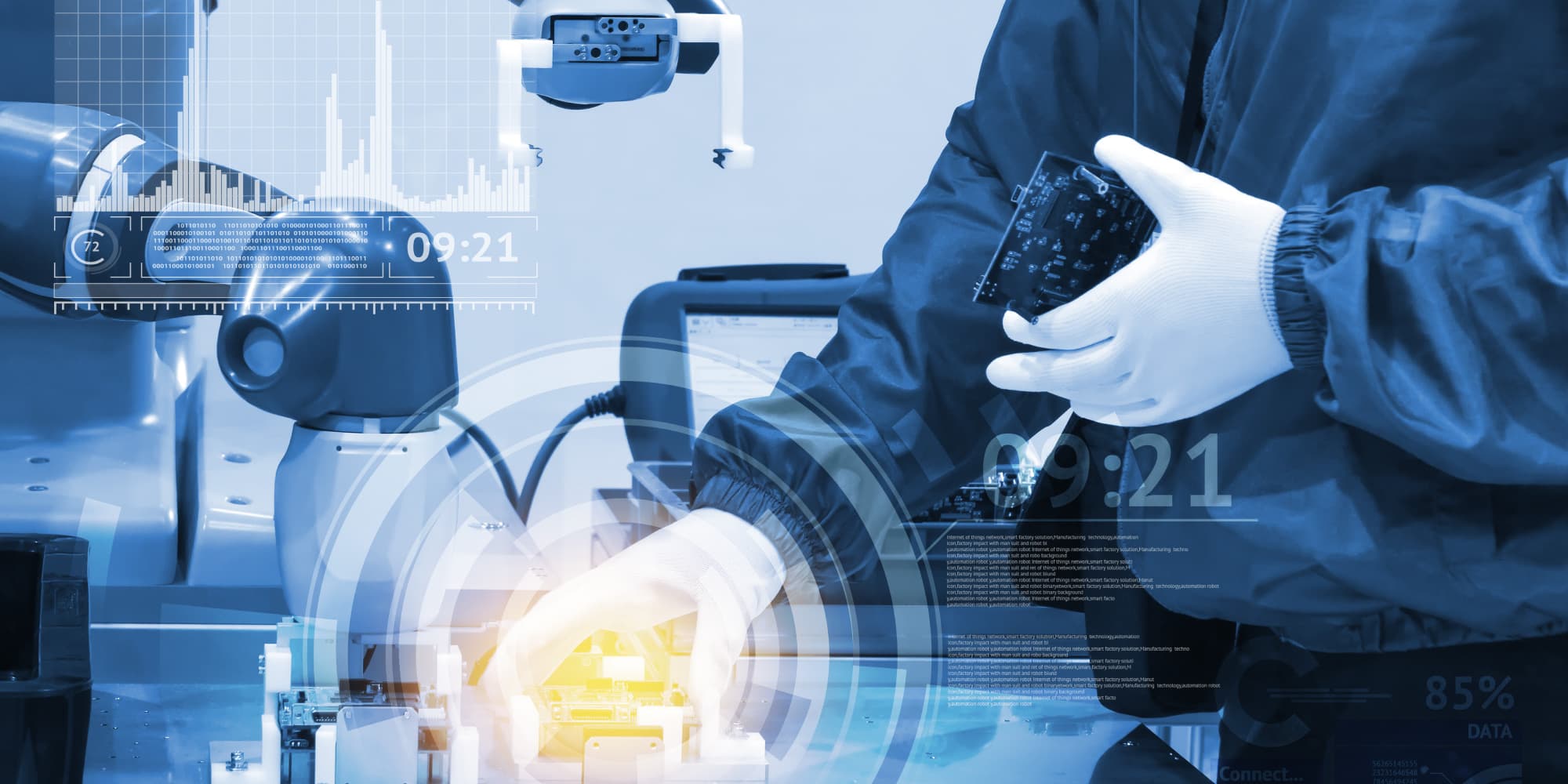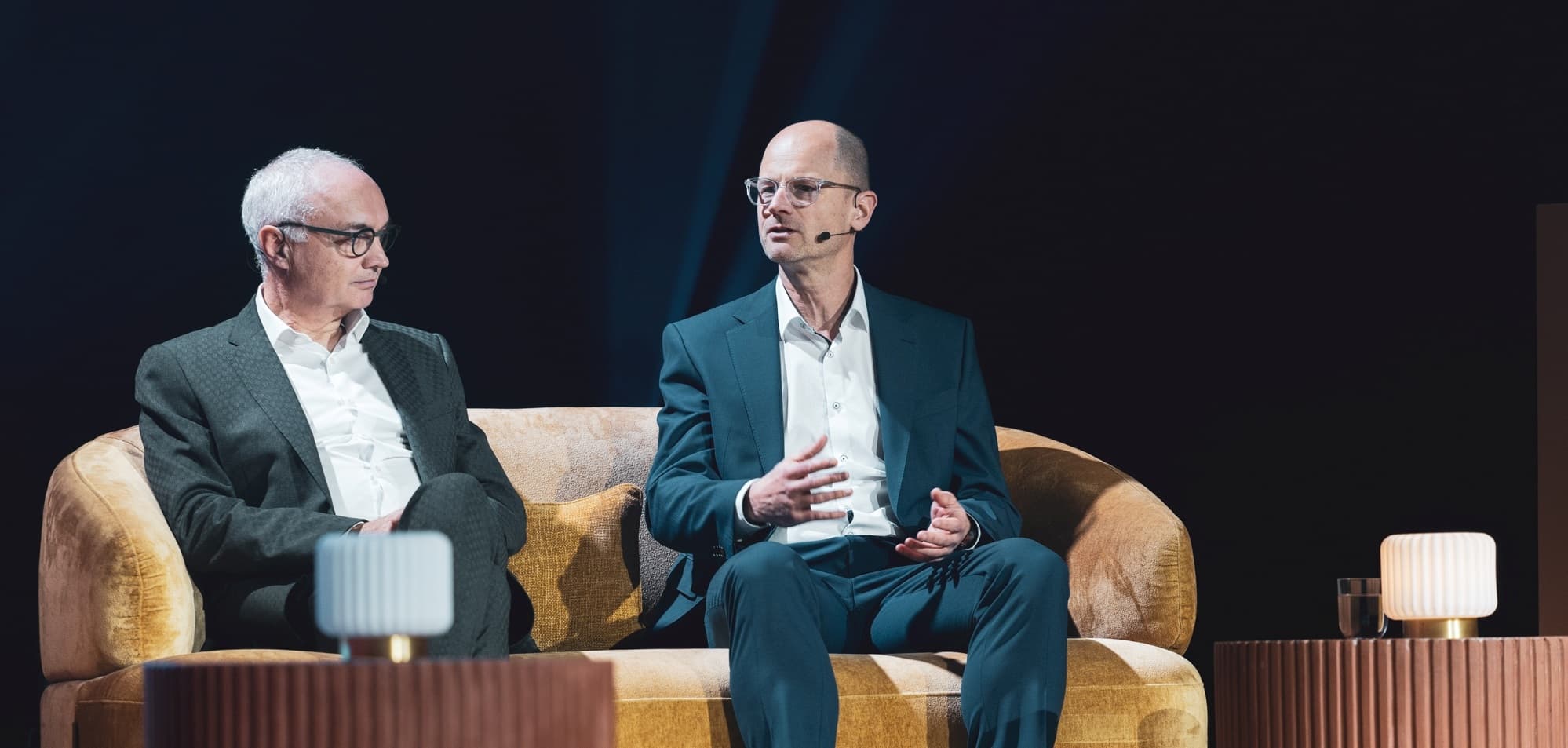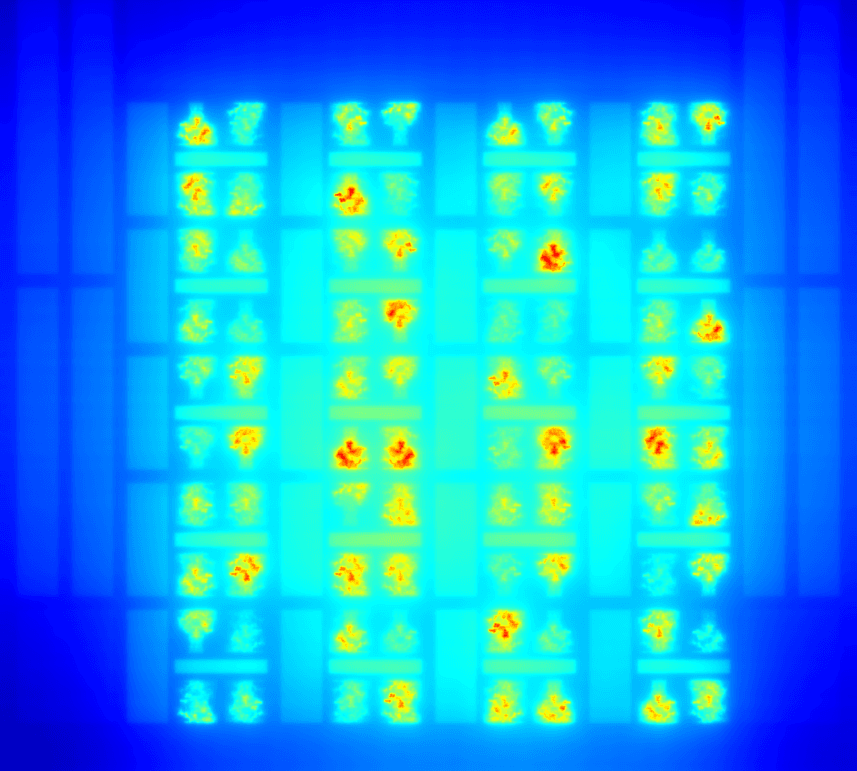On 8 April 2019, imec, together with Antwerp and Ghent University, performed a unique real-life test with two connected and collaborating cars on the new Smart Highway test infrastructure along the E313 highway in Belgium. On the roof of the cars there was a radio module for communication with the other cars and with the road infrastructure, and a module for data processing. Along the route of the test site, radio units were installed on the side of the road that communicate with the cars.
During the test, three cars drove in a row. Two of them were equipped with radio modules, while in between there was an ordinary car.
When the first car made an emergency stop, this information was quickly passed on to the other equipped car, even if the normal car was between the two connected cars, or if it was out of sight of the first car.
The second connected car was then immediately alerted to brake or stop. The aim is to use this type of information as an additional source of data to control self-driving cars in the future.
It is expected that connected and soon possible self-steering cars will compensate for human error and thus reduce the number and severity of accidents. This is because, thanks to technology, the car knows, sees and can process more than the driver, also about events that take place e.g. 10 cars further. It is also expected to contribute to smoother traffic through better anticipation of abrupt braking and resulting traffic jams, smoother maneuvers (such as changing lanes), and safer shorter driving distances between cars.
Smart Highway is a project of the Flemish government and runs in parallel with the European CONCORDA project. Both projects are coordinated in Flanders by imec and Antwerp University, with Ghent University, VUB, KU Leuven and Flanders Make (Smart Highway only) as research partners, and Toyota, Ericsson (CONCORDA), BMW, Telenet and Septentrio (Smart Highway) as associated partners from industry. From Europe there is a parallel initiative with CONCORDA in countries such as the Netherlands, Germany, Spain and France.
Want to know more?
- Vimeo movie clip about the Smart Highway project.
- Article from imec magazine in March 2018: Imec enables vehicles to work together, creating smoother and safer traffic flows.

Bart Lannoo is senior business developer at the IDLab-Antwerp research group at the University of Antwerp and imec. The research at IDLab-Antwerp is focusing on Wireless Networking and Distributed Intelligence. Since January 2018 he is also coordinating the Flemish Smart Highway project where imec will deploy a test bed for vehicular communication in Flanders.
He received a M.Sc. degree in electro-technical engineering and a Ph.D. degree from Ghent University (Belgium) in July 2002 and May 2008, respectively. Before joining University of Antwerp in April 2016, he has been working at Ghent University and iMinds/imec, where his main research interests were in the field of fixed and wireless access networks, focusing on MAC protocols, Green ICT and techno-economics. He has been involved in several national and European research projects dealing with various topics like optical access, wireless (city) networks, energy-efficient network design and smart manufacturing. He is author or co-author of more than 100 international publications, both in journals and in proceedings of conferences.
Published on:
13 May 2019














